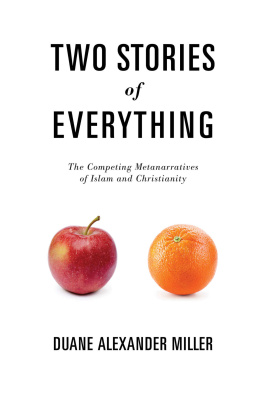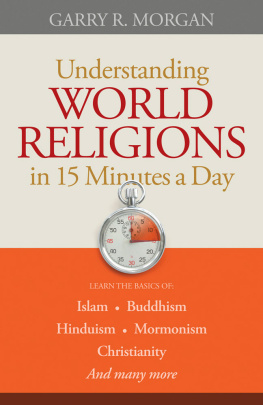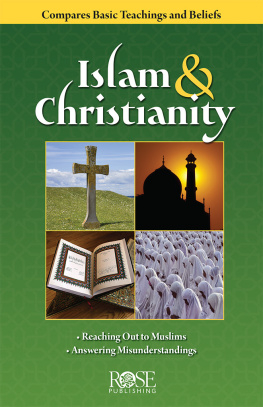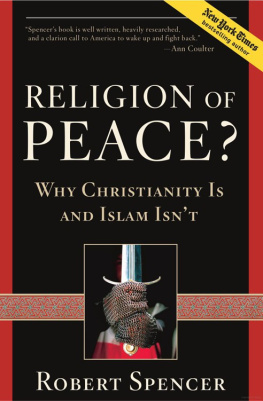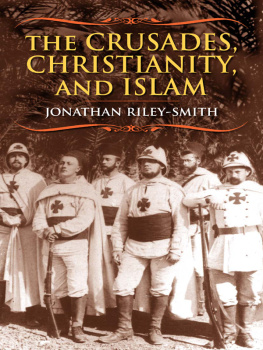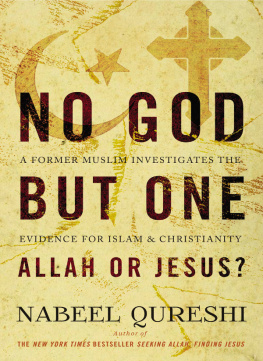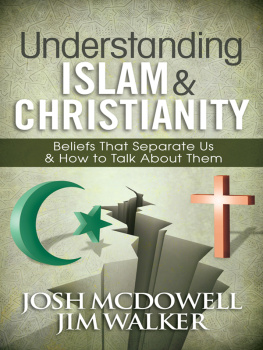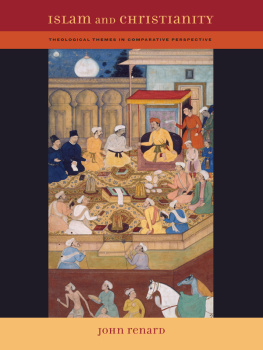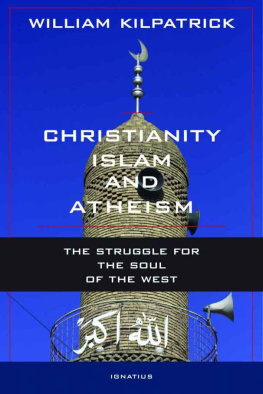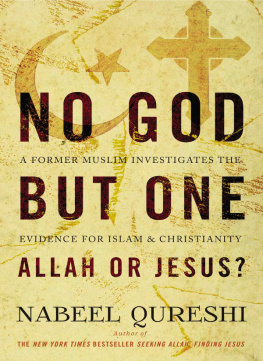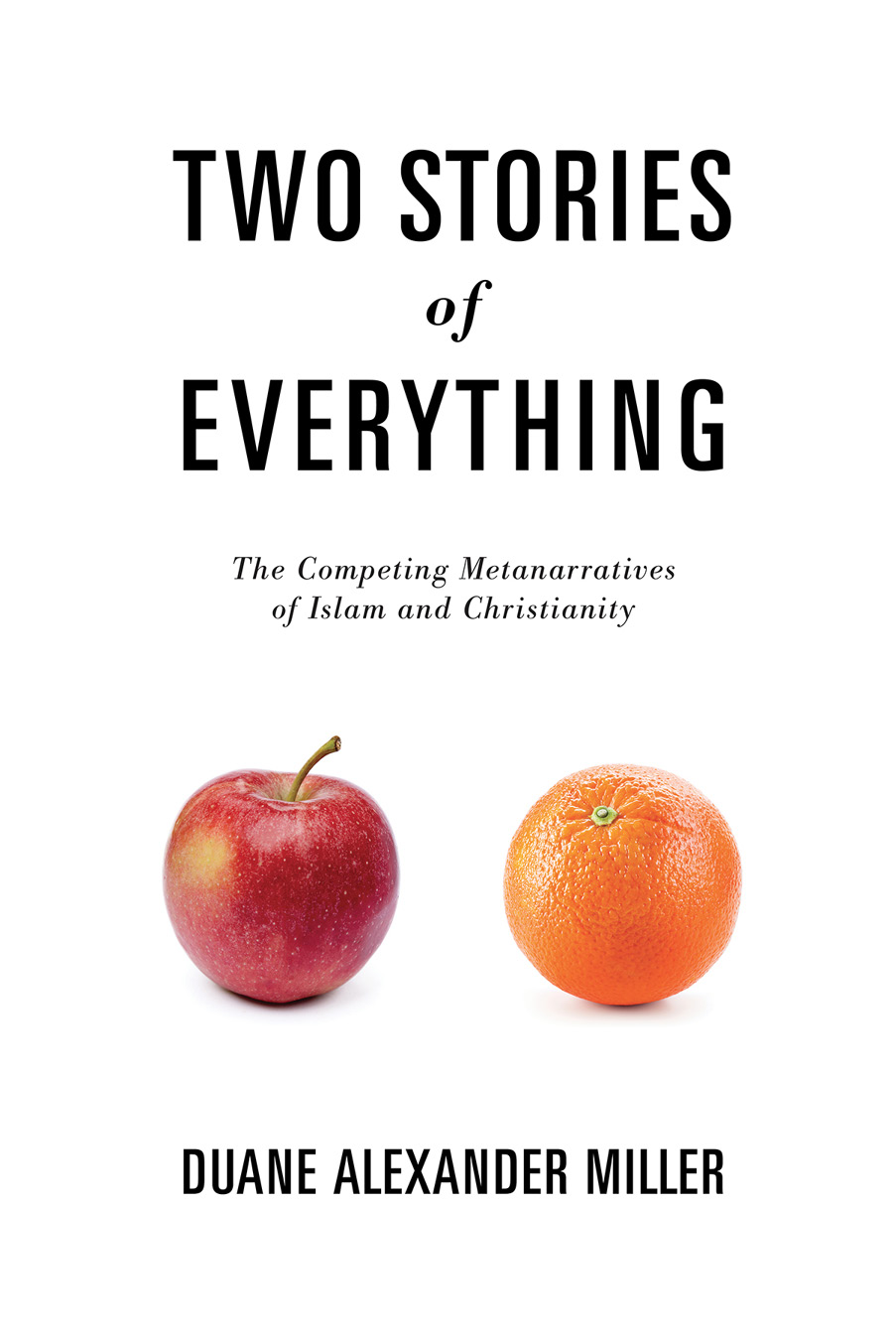Preface
Standing on the lawn in front of the church the man gripped my hand and looked me in the eye and said, I am a Jew, and a Christian, and a Muslim.
This man had vigorously opposed me teaching on Islam at his church (which is also the church our family belongs to). This was new to me. I had been teaching on Islam and Christianity at churches for going on a decade at this point, and had never had anyone say this sort of thing to me! At the heart of his case against me was that it is un-Christian to critically examine the faith of another community.
During one Sunday school session when my wife was sharing about her experience as a woman living among Muslims in the Arab world he stood up and opposed her. During one of my lectures he did the same thing to me. This made everyone feel nervous and awkward. But it did affirm me in the conviction that a critical and new re-visioning of Islam and Christianity is both timely and helpful, and that while I am critical of both Islam and Christianity, I make a genuine attempt to be fair.
In any case, it was after this series of seven Sunday school sessions that I really started to think that I needed to set down this material in a more concrete form than just lectures. It was after that event that a decision to write a book was made.
But the genesis of the ideas outlined in this book goes back quite a bit further. I was teaching at Nazareth Evangelical Theological Seminary some years ago. We had a visiting group from Italy and I was presenting a lecture to them comparing the narratives and metanarratives of Islam and Christianity. My friend Scott Bridger asked if he could cite the material; I said that beyond an outline and a lecture I did not have anything written down. But there was enough interest that I dashed off a brief summary of the material and that was published with the somewhat bland title of Narrative and Metanarrative in Christianity and Islam ( St Francis Magazine , Vol 6:3, June 2010).
I believe this approach of comparative metanarratives is more fruitful than that of comparative religions. And so, I will not treat themes topicallyGod, prophets, rituals, holy writings, etc. Rather, I will treat them chronologically, or better yet, narrativelyas the story develops. Because these are stories of everything, they each propose that your own life is part of their metanarrative, and as such demand that you make a decision and take a stand regarding how you relate to them. I am a Christian, and my conviction that the Christian metanarrative is more convincing than that of Islam may be apparent from time to time. However, this book is not an attempt to establish the superiority of Christianity, nor it is a polemic against Islam. There is only one place in the book where I explicitly explain why I find the Christian metanarrative more compelling than that of Islam. A secondary theme is my conviction that the West, a civilization characterized by a secular humanist metanarrative, is irreversibly moribund.
But I digress. Subsequent to that brief article in SFM I published a number of articles on Anglicanism in the Middle East but my main focus was on researching, writing, and then (worst of all) editing my PhD. This was gradually accomplished under the able guidance of Dr. Elizabeth Koepping at New College in Edinburgh. The thesis was defended in September of 2013, modest corrections were made, the final version was submitted, and the degree was awarded in 2014. That thesis, titled Living among the Breakage: Contextual Theology-making and ex-Muslim Christians , was done, and I found myself with time for other writing projects.
In October of 2013 my family and I moved back to the USA after many years living overseas. This allowed us to attend our home church in San Antonio again, after a long absence. Christ Church, which is where I met the man who was a Jew, a Christian, and a Muslim, asked me to present some teachings on Islam and Christianity and afforded me a generous seven Sunday school sessions to do this. This allowed me (or required me) to explore in greater depth the theme of the comparative metanarratives (rather than comparative religions).
Several people asked to buy my book on the topic and after some prayer and reflection I decided that the time had arrived to commit myself to a substantial expansion of that slim article from St Francis Magazine . Finally, the epigraph by Eliot is used with permission.
Duane Alexander Miller
The Anglican Cathedral of the Redeemer, Madrid
Fifth Monday of Mozarabic Advent, 2017
Excerpt from Choruses from The Rock from Collected Poems 1909-1962 by T. S. Eliot. Copyright 1936 by Houghton Mifflin Harcourt Publishing Company. Copyright renewed 1964 by Thomas Stearns Eliot. Reprinted by permission of Houghton Mifflin Harcourt. All rights reserved.
Introduction
People often talk of Islam and Christianity as competing religions , and compare their doctrines and practices . When I moved to the Middle East ten years ago I shared this opinion. But over that time I have found this approach to be deficient. Which is not to say it is wrong, but it fails to grasp the genius of either of these collections of doctrines and practices. Is there a more nuanced, effective way to view the relationship between Christianity and Islam? What other option do we have? In this book I will outline the stories that Islam and Christianity tell. Furthermore, all of these stories (or narratives) find themselves included in a great story of everything, which is to say a metanarrative. Islam and Christianity, whatever they may be, certainly do propose to tell a grand story of everything, from the creation of the world and time all the way to the consummation of history and the eternal fate of human souls.
I believe that forcing Islam and Christianity into the Enlightenment category of religion is a harmful move. This is not to say that we can never use the word religion to speak of Islam and Christianity, which are commonly called religions. Rather, the Enlightenment influence on religion, which made religions ipso facto the sort of things that could be privatized and cut off from the public life, is misleading and inauthentic. The thinkers of the Enlightenment (early 1600s through late 1700s) claimed to emphasized analysis, reason, and individualism, and argued that the public sphere should operate according to reason and science, whereas the subjective opinions of faith (which cant be proved either way) should be kept to ones self or ones religious community, which is to say the private sphere.
This compartmentalization of faith and reasontreating them (incorrectly) as if they were two different sources of knowledge with little or no relation to each otherbetrays the genius at the heart of both of these movements. They both, at their very core, (and those are very different cores, I will argue) resist privatization and compartmentalization. The Enlightenment vision was that such a society would be able to move beyond the superstition of medieval Christendom into a brave new world of reason, analysis, individualism, and modernity. In two words, the world of secular humanism . Secular because the governance of society comes from this world ( saecula in Latin), and humanist because the human individual is the center of each persons universe, rather than God, or the Kingdom of God, or his Law/Torah/Sharia. This project of discerning the objective reason from the subjective religious faith is, from the very beginning, an impossible task. This is the case because the very criteria used to differentiate faith from reason are always and already culturally situated. Secular humanism is, in other words, just another myth, but a powerful one. In the words of the great prophet and bishop Lesslie Newbigin:

